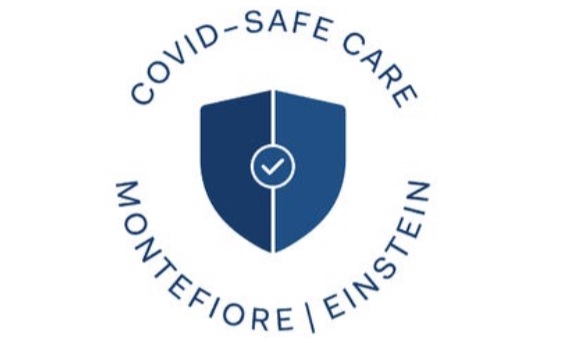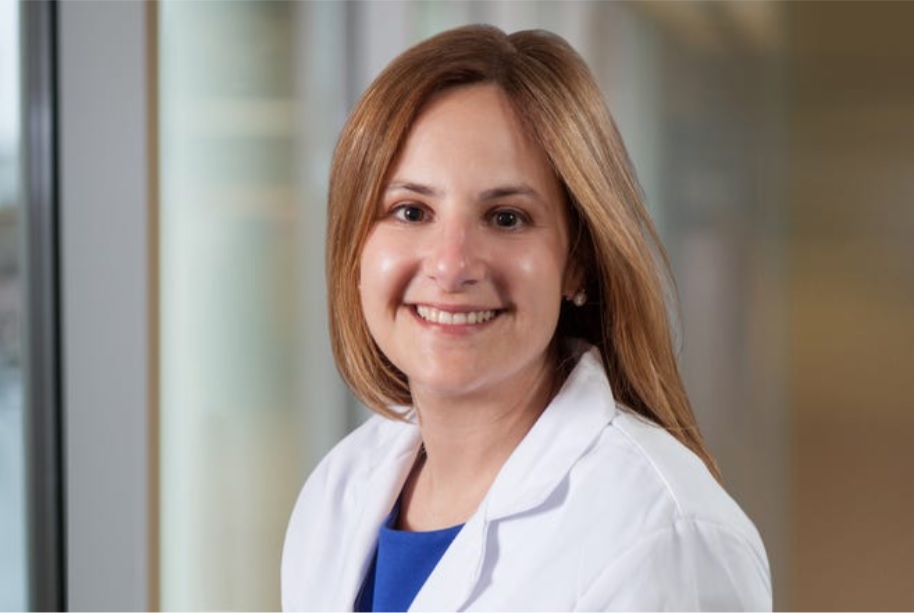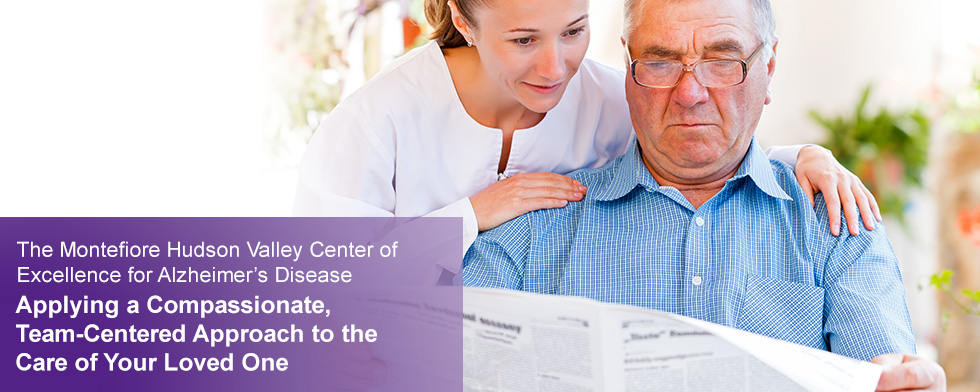Telemedicine delivers for Alzheimer’s patients and their caregivers
Dr. Jessica Zwerling, for Montefiore-Einstein
LoHud, August 24, 2020

When the COVID-19 pandemic struck, telemedicine became the vital care delivery platform for nearly every health care organization. That was also the case for patients of the Montefiore Hudson Valley Center of Excellence for Alzheimer’s Disease (CEAD). To provide quality care to our vulnerable population, our Alzheimer’s team refined our use of telemedicine and leveraged community resources. This is a story of collaboration, community and caring that will endure long after the threat of COVID-19 is in our past.
A new horizon for health care for Alzheimer’s disease
Alzheimer’s care at Montefiore-Einstein involves a multidisciplinary group of experts, including specialists in neurology, geriatric psychiatry, rehabilitation medicine, geriatrics, neuropsychology and social work. Our patients are not only older, many have multiple acute or chronic conditions. Some also have economic and environment issues as well. And their caregivers often have their own health issues, too.
Normally, our examinations and assessments are conducted in separate, face-to-face appointments that focus on patient and caregiver needs. When the pandemic hit, we had to shift rapidly to virtual care, using a number of telehealth platforms, including the MontefioreFIRST telemedicine platform and other video and platform technology to connect our clinicians with patients and caregivers quickly and efficiently. To ensure that we are able to provide culturally-competent care, all clinical visits were paired with our social worker and physician. Visits were conducted in Spanish as well as English with appropriate community referrals based on cultural background.
Telemedicine brings us into the patient’s world
A distinct advantage of a telemedicine visit is that is allows us to see the actual environment of the patient and their caregiver. We can also look at medication labels and the contents of prescription bottles, check a patient’s gait as they walk and pick up on non-verbal cues that inform care. We also worked to establish goals of care for patients and had important discussions about advance care planning, including making sure they had designated someone they trusted to be their health care proxy.
We quickly discovered that some patient situations abruptly changed under quarantine. Caregivers or family members, for example, became ill and needed to self-isolate. As a result, patients had to move in with a different family member or into a different living situation, which can be very stressful for an Alzheimer’s patient. New environments also may have new risks. We needed to monitor falls, social isolation issues and ensure that patients had access to groceries and medicines while following stay-at-home orders. A strong focus on the social determinants of health was highlighted with each visit.
With increased social isolation, neurology and neuropsychiatry issues arose, with some patients experiencing hallucinations, changed behavioral symptoms, disinhibition, crying, depression, even apathy or frank withdrawal. We found that it wasn’t always easy to separate what we would call behavioral symptoms from what could be a new illness like COVID-19, a urinary tract infection or something else. While we could triage and work up the medical issues, we turned to community partners for follow-up and support for in-home evaluation.
Collaborating with community partners to address more needs
During this challenging period, Montefiore’s longstanding relationships with community partners have been incredibly important. Our CEAD engages weekly with local organizations such as the Alzheimer’s Association, Westchester Jewish Services, Meals on Wheels and many others.
With the help of our community partners, home health workers wearing appropriate personal protective equipment were able to provide at-home care and services. One partner even set up a virtual senior center to facilitate interpersonal engagement for patients while maintaining social distancing. We were also able to coordinate with local resources for medication deliveries and other aspects of care that patients experienced in person previously.
Cultural competence and telemedicine
Providing culturally competent care is a signature strength of the Montefiore CEAD, and it involves much more than simply overcoming language barriers. We found that some patient-caregiver dyads distrust telemedicine. In these cases, we overcame this barrier by starting with a telephone visit, then transitioning to a video visit once the patients and caregivers felt comfortable.
Some of the patients showed reluctance to accept outside help, even as their isolation increased. To address this, we aligned these patients with a bicultural care consultant who not only spoke their language but also connected them and their caregivers with appropriate community resources, such as religious support groups and other organizations they could easily relate to.
Transforming care for Alzheimer’s patients and caregivers
The Montefiore Hudson Valley Center of Excellence for Alzheimer’s Disease is supported in part by a New York State Department of Health grant to expand and improve services to Alzheimer’s patients and families, including those living in areas well outside our urban locations. Telemedicine now extends our reach to people dealing with geographic barriers and makes care increasingly convenient for patients who used to have to travel for an in-person appointment. What we’ve learned and built during the COVID-19 pandemic is invaluable. We expect CEAD patients and caregivers will continue to benefit from services provided through MontefioreFIRST and our other telehealth platforms and our collaborators working in communities across the region.
With the combination of telemedicine and the resumption of face-to-face visits, we feel we now have an even better lens into our patients’ daily lives as we continue to provide world-class care.

During these unprecedented times, taking care of our own health is essential. Montefiore-Einstein is here and committed to providing you the COVID-SAFE Care you need, whether in-person or from the safety and convenience of your home with our Montefiore FIRST doctor video visits.

Jessica Zwerling, MD, is director of Montefiore Hudson Valley Center of Excellence for Alzheimer’s Disease (CEAD). She is also Associate Director for the Montefiore Einstein Center for the Aging Brain, Associate Professor of Neurology at the Albert Einstein College of Medicine, Clinical Director of the Einstein Aging Study and was recently named a 2020 “Healthcare Hero” by Westchester Magazine.

